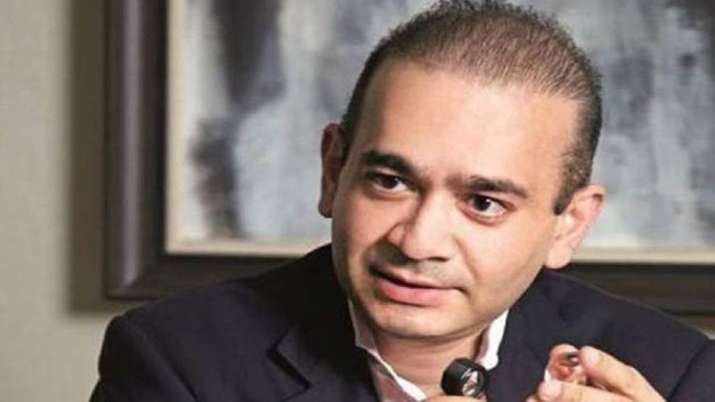
UK High Court allows Nirav Modi to appeal against extradition on grounds of mental health
A UK High Court judge on Monday ruled in favor of extradition of fugitive diamond merchant Nirav Modi to India to face charges of fraud and money laundering before Indian courts on mental health and human rights grounds, following a magisterial court order. allowed to appeal against.
Justice Martin Chamberlain delivered his ruling remotely under the COVID-19 rules to conclude that the arguments presented by the 50-year-old diamond merchant’s legal team regarding his “severe depression” and “high risk of suicide” were sufficient hearing. were debatable.
He also noted that the adequacy of measures capable of preventing “successful suicide attempts” at Mumbai’s Arthur Road Jail, where he is to be detained upon extradition, also comes under debate.
“At this stage, the question for me is simply whether the appellant’s case is reasonably debatable on these grounds. In my judgment, it is. I will allow the appeal on Grounds 3 and 4,” Justice Chamberlain’s ruling Note.
Bases 3 and 4 relate to Article 3 of the European Convention on Human Rights (ECHR) or the right to life, liberty and safety, and Section 91 of the UK Criminal Justice Act 2003, which deals with fitness for petition.
The judge noted an overlap between the two grounds as they both depend primarily on the mental ill health of the appellant, Nirav Modi.
Read more: UK High Court dismisses Nirav Modi’s extradition plea, 5 days to appeal for oral hearing
“I will not restrict the grounds on which those grounds can be argued, although it seems to me that special consideration should be given to whether the judge had done wrong in arriving at his conclusion, with regard to the seriousness of the appellant. Given the evidence (of Nirav Modi) of depression, high risk of suicide and the adequacy of any measure capable of preventing successful suicide attempts at Arthur Road Jail,” the ruling notes.
Under Article 3 of the ECHR, to which the UK remains a signatory, a person cannot be extradited if doing so would be unjust or repressive, which was also used in the case of WikiLeaks founder Julian Assange earlier this year. had gone.
Permission to appeal on all other grounds was denied and the matter will now proceed for a concrete hearing before the High Court in London under Grounds 3 and 4.
At a remote hearing on 21 July, Nirav’s lawyer Edward Fitzgerald QC argued that District Judge Sam Goozy’s February order in favor of extradition was wrong to say that there was “nothing unusual” about his mental state. And it was wrong to focus only on his current fitness. To plead.
“The judge was wrong to discount the high risk of suicide on the grounds that it was not ‘immediate,'” Fitzgerald argued.
Crown Prosecution Service (CPS) barrister Helen Malcolm QC, arguing on behalf of the Indian authorities, counters to the Indian government to reiterate the assurance given by the Indian government of adequate mental health care for the accused if they are extradited to an Indian prison. did.
“The basis of the judge’s view was the existence of a serious situation that required management, which is why the judge respected the assurances,” she said.
Delivering his verdict, Justice Chamberlain noted that the defense relied on new evidence by Nirav Modi’s lawyer Anand Dobe during the appeal hearing, highlighting the resurgence of coronavirus in India, which will affect the care available to him in prison. .
He concluded, “The admissibility of Mr. Dobe’s evidence shall be a matter for the Court to consider the genuine appeal.”
Meanwhile, all other grounds raised by the defense including admissibility of evidence provided by the Enforcement Directorate (ED) and the Central Bureau of Investigation (CBI) were dismissed.
“Prima facie the approach of the judge to identify the case was correct. Considering the amount of evidence he had to apply, and the amount of evidence against the appellant, he was entitled to conclude that prima facie case emerged in each of the requests,” the High Court judgment noted.
The diamond trader, wanted to face charges of fraud and money laundering in connection with the estimated USD 2 billion Punjab National Bank (PNB) scam in India, meanwhile remains in Wandsworth Prison in south-west London.
The High Court’s decision concerning his mental health paved the way for another attempt at an application for bail, which had previously been turned down on several occasions despite being offered £4m in security.
Nirav Modi is the subject of two sets of criminal proceedings, the CBI case relating to large-scale fraud on PNB, involving fraudulently undertaking (LoUs) or loan agreements, and the ED case relating to laundering. proceeds of that fraud.
He also faces two additional charges of “disappearance of evidence” and intimidation of witnesses or “criminal intimidation to cause death”, which were added in the CBI case.
India is a designated Part 2 country based on the Extradition Act 2003, which means it is the UK Cabinet Minister who has the authority to order the extradition of the person requested after all legal issues have been settled in the courts.
The High Court ruling also found that Home Secretary Priti Patel had “substantial” grounds to accept the Westminster Magistrates Court’s decision and sign off on extradition in April.
Read more: Nirav Modi’s sister sent Rs 17.25 crore from UK account to Indian government: ED
.